How A HVAC System Works & Why Certified Houston HVAC Technicians Should Install It
An HVAC system is at the core of a home’s heating and cooling. Enjoying the benefits of such an installation for an extended period is dependent on having a high-quality system in place. That way, your home will have a comfortable indoor setting in the chilly winter months and at the height of the summer.
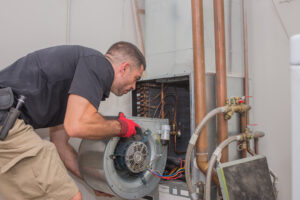 You have the HVAC in place, but do you understand how it works? If you know this, then you are in a better position to tell when there is a problem with your heating and cooling system that needs immediate attention.
You have the HVAC in place, but do you understand how it works? If you know this, then you are in a better position to tell when there is a problem with your heating and cooling system that needs immediate attention.
First off, you should be aware of the various heating and cooling distribution system available and how they work. That way, you will have a better understanding of your HVAC.
Forced Air Systems
It generates cold or hot air and pushes it through metal ducts. However, the cold air is forced through one set of the ductwork and the warm air through another based on whether you have the furnace or the AC running. The forced air systems are, however, bedeviled by blowouts. When the systems are near the end of their lifespan, the blowers start to malfunction. In some cases, the blower stops working. The same issues also crop up with their adjuster features.
Gravity Systems
Hot air rises as cold air sinks; that is the premise upon which gravity system operates. And it is this functional design that makes them not an ideal choice when you have an AC system. The gravity systems are installed in the basement with ducts running to the floor and ceiling. Hot air is forced through the floor vents, and as it is also sucked up by the vents in the ceiling as it rises to allow cold air to sink.
Radiant Systems
The radiant systems face the same issues as their gravity counterparts in that they cannot work with ACs. With the radiant systems, you have an installation that heats the walls, floors, and ceiling. In most cases, they will involve the heating of an implement, such as a radiator that then releases the heat that is distributed in the room. But with such a system, the pipes transporting hot water malfunction as they wear and tear over time or due to a build of mineral deposits.
HVAC System Parts & How They Work
The efficient functionality of any HVAC system is subject to having different parts working as they should individually and collectively. Every make may be unique, having special features; however, the differences between their core mechanisms are relatively few. The four main components of any HVAC system are:
1. Furnace – It utilizes oil or natural gas that is in a heat exchanger to heat the air. The furnace also has a component the regulates the heating to achieve the desired temperature. It can be installed in the basement, attic, or in a custom closet space.
2. Air Conditioner – Its primary function is to cool the air, and it is installed outside the house. It has a coolant that is electrically activated to help lower the temperature of the air being pulled in and forced indoors as it also sucks and pushes the hot air outside the house.
3. Ductwork – The ducts are a transit system in which the air flows. Some are where hot air flows while others are through which cold air flows. The ductwork runs throughout the inner area of the home’s structure, so they are not within sight.
4. The Thermostat – It is the brain of the heating and cooling system. The thermostat is what’s used to turn the HVAC on and off as well as to regulate the temperature. It will also be used to control other special features need for the efficient functioning of the HVAC system.
Controls For The HVAC Systems
The thermostat is at the heart of the functionality of your heating and cooling system. It relies on heat sensors that read the current air temperature so that it can manage the heating and cooling of the indoor air.
You will need to input or set the temperature you prefer; this is known as the setpoint. The thermostat will activate the heating or cooling when it notices that the temperature is below or above the setpoint. That means will turn the furnace and the AC on or off, accordingly. All this is dependent on the bimetallic element that expands and contracts based on the temperatures in the house.
The older thermostats have two exposed contacts. As the room cools, the bimetallic element starts bending to touch one contract triggering an electronic connection; it then will make a second one. It is the second contract that then activates the HVAC system to run and start heating or cooling the home.
So how are modern thermostats different? Well, they do not have the exposed contacts, but instead, they have these elements encases in a protective glass chamber. The contacts will uncoil when the temperature is low and will do so and complete the electrical circuit as the temperature keep dropping. To do this, they rely on a steel bar and a series of magnets. The process will trigger the furnace to run, and the exact opposite of the same process is what switches off the furnace.
That is why modern thermostats are way accurate than the previous thermostats. Moreover, they are also more durable since their electrical contacts are not exposed to the elements but protected behind glass.
Bottom-Line
The general outlook of the HVAC system will make you think that you are dealing with some very complicated. Ideally, what you have is an interlinked furnace and an air conditioning system with the two controlled by a thermostat.
You should research before you decide to buy and install a new heating and cooling system in your home. Source quotes from various reputable companies. Also, ensure that you have an expert visit and inspect your home to determine the best installation options for the HVAC system based on the layout of your premises. Keep in mind that the layout of your home will govern how much you will pay for the installation.
Get Unequaled Air Conditioning Maintenance & Repair Services
If you are looking for dependable AC installation, maintenance, and repair services, then call AC Man of Houston. We are a certified company, and we have experienced technicians that understand the specifics of different HVAC systems. We can service all AC makes and models. AC Man of Houston is who to call for a broad range of Home & Office Air Conditioning services apart from window units.
Do not pick contracts that offer quotes that include low-quality equipment. You should consider the level of comfort you need when depending on the HVAC to heat and cool your home. But then again, you also need value for your money even as you try and find the most affordable prices. Get quality products and an unmatched service from us that guarantees you will not experience any indoor air pollution or an HVAC system that start malfunctioning soon after installation.
Check out our blog for more related content. For more information on Houston HVAC services, contact AC Man Of Houston today by giving us a call. Contact us today for any questions or concerns.
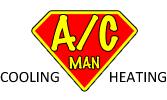
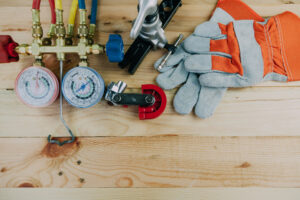 1. Ask For Referrals
1. Ask For Referrals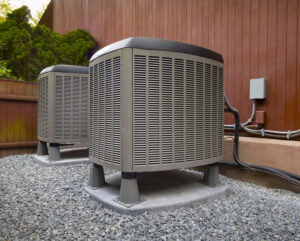 Have you been thoroughly maintaining your home’s HVAC system? If you’re unaware or uncertain that preventive maintenance is essential for your HVAC systems, then you’ll require to read this. A majority of technicians wouldn’t want you to know that your HVAC systems can service you forever if maintained properly. Just as a vehicle does, these comfort controlling devices require attention and care regularly. Your HVAC system should also have scheduled services carried out by a professional HVAC technician.
Have you been thoroughly maintaining your home’s HVAC system? If you’re unaware or uncertain that preventive maintenance is essential for your HVAC systems, then you’ll require to read this. A majority of technicians wouldn’t want you to know that your HVAC systems can service you forever if maintained properly. Just as a vehicle does, these comfort controlling devices require attention and care regularly. Your HVAC system should also have scheduled services carried out by a professional HVAC technician.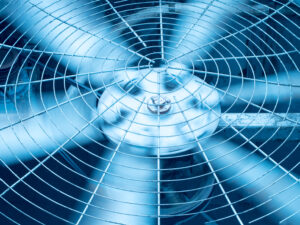 When your HVAC system does not have a filter, the condensate drain will not be able to work correctly. This means that moisture will not be removed correctly from the unit. When heat is removed from the air, condensation will form on the refrigerant tubing and this will drip into the drain pan. The pan will then drain outside the unit which helps you dehumidify your home as well. The filter on your HVAC system will stop debris from clogging your condensate drain and causing water
When your HVAC system does not have a filter, the condensate drain will not be able to work correctly. This means that moisture will not be removed correctly from the unit. When heat is removed from the air, condensation will form on the refrigerant tubing and this will drip into the drain pan. The pan will then drain outside the unit which helps you dehumidify your home as well. The filter on your HVAC system will stop debris from clogging your condensate drain and causing water 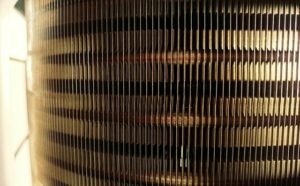 The price of
The price of 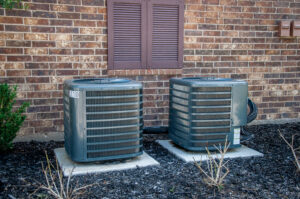 Your heating and
Your heating and